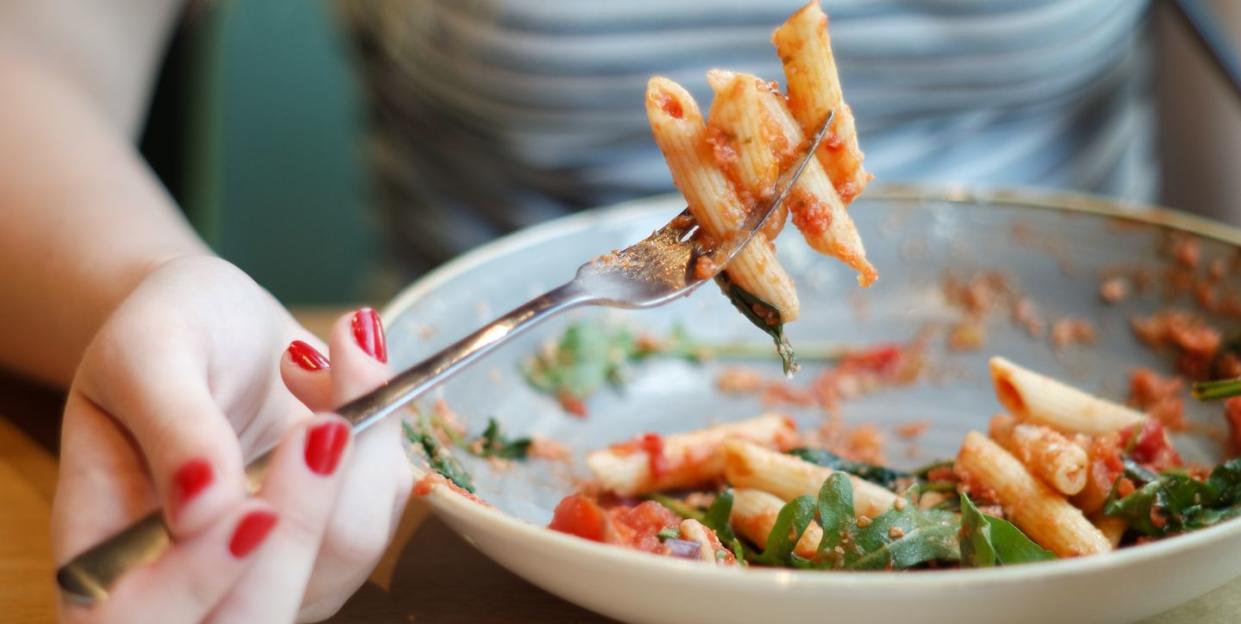What is carb backloading?

Carbohydrates have forever fuelled debate, when it comes to living your healthiest life. Now there's another reason why. Meet 'carb backloading'.
What is carb backloading and should I try it?
Conventional diet wisdom has tended to proclaim that simple carbohydrates are a no go, especially at night.
But, one on-the-rise trend, known as carb backloading, shakes off these nighttime faux pas and embraces a carb consuming dinner time meal.
Not to be confused with necking spaghetti in the days before a race (carb loading), carb backloading is the idea that by timing the intake of your macros, you can alter your body composition.
"It’s based on the premise that eating carbs after an evening workout means they’re less likely to be stored as fat," says clinical and sports dietitian Rick Miller.
Studies suggest insulin sensitivity peaks in the morning, making glucose absorption into both muscle and fat tissues more likely.
Avoid carbs during the day – so the theory goes – and the body will use stored fat for energy (à la the ketogenic diet).
Then, after early evening training, when your muscles are crying out for fuel, loading up on pasta will shovel glycogen into your muscles, rather than storing it as fat.
Is the theory legit?
The concept – one taken up mainly by pro athletes – is just a theory.
"It doesn’t make sense from a circadian rhythm point of view," says Miller. "Research suggests that your tolerance for carbs actually goes down in the evening.
"Another issue is that carb backloading favours simple carbs, so you’re missing all the nutrients found in wholesome starchy food, like fibre, B vitamins and beta-carotene,’ adds Miller.
We prefer things a little more complex.
You Might Also Like


